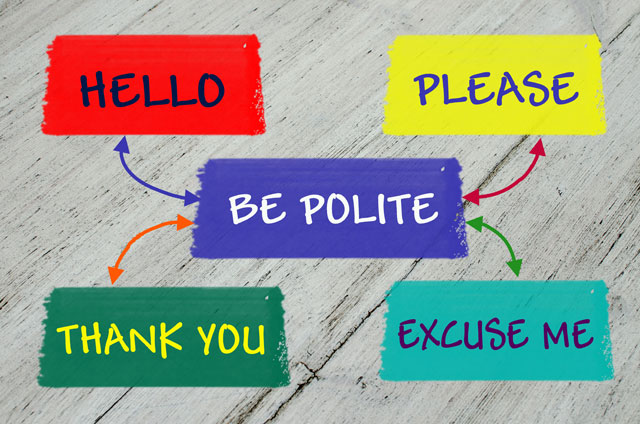Emotions play a large and vital role in our lives. Being aware of emotions and able to manage them is related to success and happiness, something we want for our children. Children (and adults too) who have emotional intelligence are able to better understand themselves and others.
Supporting the development of emotional intelligence is a key goal of positive parenting. In this article, we will look at the definition of emotional intelligence, how the parent can serve as an emotion coach, and the specific skills children need to attain.
What Is Emotional Intelligence?
Emotional intelligence is the ability to competently process emotion-related information and use it to guide thinking and behavior. There are four generally accepted parts or branches, as identified by John Mayer and colleagues:
1. Emotional perception. This has to do with recognizing and taking in verbal and nonverbal emotion information. It's about paying attention to how you or others are feeling. Especially in other people, we must read facial expressions and tone of voice to do this.
2. Emotional facilitation of thought. This is using emotions in cognitive processes (thinking), like problem solving, or being creative. Emotions can also change our thoughts. For instance, being happy is linked to thinking positively, while being sad to thinking negatively.
3. Emotional understanding. This also has a cognitive component, where insight and knowledge are used to understand one's own feelings and those of others. The cognitive aspect allows us to label our feelings, think about the relationships between them, and the associated outcomes. An example is knowing that if you're feeling frustrated, these feelings could become anger, if you don't figure out how to solve the problem that's making you feel frustrated in the first place.
4. Emotional management. This has to do with regulating emotions, both in oneself, and how to facilitate this in others. This isn't about suppressing negative emotions and only working to feel positive ones; it's about acknowledging that both exist, and how to regulate oneself to find a balance. When it comes to managing emotions in others, this is more about how to utilize them. For instance, a coach might harness feelings of anxiety to motivate her team to work harder.
What Influences Emotional Intelligence?
As with many other areas, emotional intelligence is a result of the interaction between the child's individual characteristics and his/her environment. A child's characteristics include such things as temperament, intellect, and physical well-being. The environment consists of both the physical, as well as the people in it, particularly parents.
The parents' own characteristics, the parent-child relationship, and the practices parents use for child-rearing all make up a powerful part of the child's environment. With respect to developing emotional intelligence, the first and most important place children learn about emotions is in the family.
The Parents' Role as Emotion Coach
John Gottman describes a vital role of parents as being "emotion coaches." To do so requires "meta-emotion." This is having an organized, coherent set of feelings and thoughts about one's own emotions, and the emotions of one's children.
When parents serve as emotion coaches, they:
-
Are aware of emotions in themselves and in their children, including low intensity, so feelings don't have to escalate to get noticed.
-
See their child's negative emotions as a chance to become closer, or to teach.
-
Validate, by acknowledging and supporting, their child's emotions.
-
Help give verbal labels to their child's emotions.
-
Problem-solve, in partnership with the child, by setting limits about acceptable behavior, and talking about goals and strategies for ways their child can deal with the situation that gave rise to negative emotions.
When parents lack meta-emotion, they aren't able to be emotion coaches. Instead they:
-
Believe children feeling negative emotions like sadness or anger can be harmful to them.
Interested in learning more? Why not take an online Positive Parenting Techniques course?
-
See it as their responsibility to quickly change these negative emotions in their child.
-
Feel their child needs to be made aware such emotions will pass and they aren't important.
-
Communicate to their child they should, and can, endure experiencing these negative emotions without harm.
It turns out some such parents do want to be helpful when their child has negative emotions. Their strategy, though, is to ignore or deny the feelings. If this doesn't work, they try to distract the child. Failing that, they interpret these feelings as demands for them, as parents, to make everything okay.
Along the way, they will use comfort, but for only a short period of time, feeling impatient if the child doesn't become "happy" right away. They prefer a happy child, and get distressed when they aren't. They sometimes even resort to punishing the child for having negative emotions, for example, putting the child into time out until he/she "gets a better attitude" -- in their view -- being happy. This likely goes without saying, but these parents don't see the child experiencing negative emotions as teachable moments.
Emotional Intelligence "Competency Areas"
We've given an overview of the processes that happen in emotional intelligence by looking at the four branches. Now, let's look at the competencies children (and adults/parent, too) need to have to be emotionally intelligent. Much of what we know in this area comes from the work of Daniel Goleman.
His five components of emotional intelligence are emotional awareness, self-regulation, motivation, empathy, and social skills. Other important skills identified are problem-solving, reality testing, and flexibility and have to do with adaptability. Adaptability is important because emotional understanding and practice is a bit like a moving target. For instance, no two social situations or people we meet/interact with are the same. Situations that seem the same on the surface are different every day, like the classroom or even the home depending on what's going on emotionally with every member of the family.
While we'll look at these one by one; the order is not to imply one happens first, then the others follow in a sequence. To a large extent they influence, and are influenced by, one another. By understanding these, we are better able to help children understand them, too.
Emotional self-awareness. This is both about oneself and about others. It's knowing that emotions are present, what those emotions are, and having an understanding of how they impact us and others. There are a few levels of this. First is becoming aware, because we feel something in our bodies or thoughts. Next is to acknowledge the feeling or emotion by paying attention to it. This is followed by identifying it -- usually by being able to name it.
Once that happens, we can accept the feeling, negative or positive. We might think we should not feel any negative emotions, or we think we don't deserve to feel positive ones; and we have to work to change these beliefs. Another level is that, with maturity, we can reflect on our feelings -- for example, thinking back to a situation and how we felt. Finally, comes the ability to predict how we might feel in the same or a similar situation in the future.
For children, it can take well into adolescence to be able to get through all these levels and do them well consistently. As they are learning, they need parents to guide them.
Self-regulation. This isn't about becoming a robot who doesn't feel, or who shies away from any negative emotion. Rather, it's about once you can become somewhat self-aware, you can make choices, frequently about behavior, that are in your best interest. Self-regulation is about being in control of the emotions we feel. For many of us, we have a harder time with negative emotions like anger, disappointment, or jealousy. Self-regulation is not just being able to calm ourselves down, but also to cheer ourselves up.
It's also about predicting what will happen before acting. This helps us reduce impulsiveness. We might do something in anger, or even in joyful excitement, that we later regret if we aren't able to stop ourselves to think it through. Having good problem-solving skills is key here; this allows us to identify a problem, dilemma, or tricky situation -- and then come up with different solutions, ending by picking the one that will be most effective for that problem or situation. Sometimes this means we have to change what we are feeling, thinking, and how we will behave as situations change. This is called flexibility.
A lot of attention is given in the parenting advice world about self-regulation. It is absolutely necessary for emotional intelligence, but it's important not to focus on this to the exclusion of the other components of emotional intelligence. One reason is, they all work together to support each other. That said, it is a place parents need to devote a great deal of time to. That's one of the reasons in positive parenting, so much attention is given to effectively guiding children's behavior.
Motivation. We might not automatically think about motivation as being a part of emotional intelligence, but motivation means the driving force behind taking action based on our emotions. Using emotions can help us achieve goals. It's the reason to accomplish a task, which can be very small, or very large.
Motivation keeps us focused and attentive. It helps us enjoy the activity we're engaged in, and it can help us persevere -- to keep trying, even when something is difficult, or there are obstacles, and to stay optimistic so we can succeed. On the surface, this might sound like we are motivated to do something only because we like the feeling we get, but sometimes we do something to reduce a feeling we don't like having.
The great thing about kids is that they are easily motivated. They have a strong need to explore, experience, and learn about themselves, their world, and others. Because everything is new, if encouraged, they more easily stay excited and engaged -- in a word: motivated.
Empathy. Many people get a little confused about the meaning of empathy, because it's similar to sympathy. They are related, but let's look at the difference. Empathy means sensing or recognizing the emotions someone else is feeling, and having a feeling of caring. This goes further by being able to relate to how that person feels from their point of view, including sharing in those emotions. Sympathy is really just the first part of this.
For example, you see a mother with two young children whose car has broken down on the highway. Sympathy is seeing the situation and feeling bad for them. You might even say, "That's terrible. I feel bad for them." Now imagine you see them, and reflect back to a time something similar happened to you. You can imagine, and maybe even physically feel, how distressed the mother is, and/or how frightened the children are. You might then say, "That's terrible. I feel bad for them. I can relate to that."
Here's why empathy matters. In the situation where you feel empathy, you are more likely to actually do something, even though you don't know them. It might be at considerable expense to you (which could be money, time, energy). That's called altruism, and it is considered one of the most crucial reasons the human race is so successful. It turns out humans are naturally empathetic, so with children, it's not so much a matter of "teaching" them to be empathetic, as it is to let this flourish.
Social skills. These skills are needed for relationship management. They support positive interactions with other adults and peers. They help us successfully negotiate. They promote close bonds with others. Social skills are also needed to lead well, but just as importantly, to follow in ways that result in the best outcomes for everyone in a group.
Social skills include a number of areas. Good communication helps us get our needs met and engage with others in ways that keep us close. Assertiveness allows us to stand up for ourselves without aggression or coercion, so our boundaries and opinions are heard and respected. The ability to cooperate lets us give and get assistance and support that is mutual as we engage with others interdependently.
Social skills are the area of emotional intelligence where we concretely and regularly most often connect with others. We have to be invested to do so and this, in turn, fosters feelings of belonging.
These skills especially help children in the social situation where they spend the majority of their time -- school. As with all the areas of emotional intelligence, social skills build confidence and promote good psychological health.
The Steps of Emotion Coaching
Dr. Gottman had developed a five-step process for parents to do emotion coaching. Let's take a look…
1. Be Aware. Understand how you as a parent deal with emotions. If you avoid either negative or positive feelings, it will be very difficult for you to recognize them in your child. To really understand this, Gottman suggests thinking about how emotions, especially negative ones like anger, fear, unhappiness, were handled in your family when you were growing up. Self-understanding of your own emotions promotes your ability to understand your child's in a way that is empathetic.
To become more aware, talk about your emotions and share them with your child. This doesn't mean saying things like, "You are making me really angry right now." Putting the responsibility for how you feel on your child isn't appropriate. Remember, self-regulation means owning our personal emotions. Rather, you might say, "I am feeling angry right now. I'm feeling this way because I'm seeing the rule broken about not leaving toys out after playing." Being specific is best.
In emotion coaching this is of course about the emotions your child is experiencing. Emotions do become more sophisticated over time. They build on the more basic emotions identified very early in life of happiness, surprise, fear, disgust, sadness, and anger. It's not that we show more negative than positive, it's just the negative emotions are more differentiated early, mostly for survival. Young children aren't yet able to name or label their emotions very well, so as a parent the awareness is about being sensitive to non-verbal signs as well. The labeling is important, though, and is discussed in Step 4.
2. Connect. As we've seen, emotions are very much about social relationships. Using your child's emotional experiences as a way to connect is vital to emotional intelligence. It's pretty easy for parents to want to interact with their children when they're happy, but less so when they're experiencing negative emotions.
Unfortunately, many parents react by saying things like, "Stop crying," or "Go to your room until you calm down," and then leave it at that. When parents do this they shut down the opportunity for closeness. Only accepting them when they repress negative emotions is often interpreted as rejection by the child.
Instead, try to put yourself in your child's shoes. Your preschooler is angry because another child broke her toy by not being careful. Think about how you felt when that careless driver scratched your new car! Your tween didn't get invited to a party and feels rejected. Think how you felt when your co-workers talked about the fun they had over the weekend watching the football game together, and you weren't included.
3. Listen. Your child does need to vent, as long as they aren't destructive or harming themselves or others. This is where hearing them out requires patience. They need to know you're there to listen to their feelings. This often means saying very little, and when you do, keep it to acknowledging their feelings. This doesn't mean talking them out of feeling the way they do. You want instead to teach them their feelings are valid and also how to listen well.
Keep in mind not all children verbalize. Many times it's their actions that tell they're feeling difficult emotions, so you will need to learn to "listen" to these. For instance, perhaps they aren't eating or sleeping or doing too much of these, they complain of physical symptoms, or want to always avoid certain situations.
4. Label and Name Emotions. This should start even as babies. When opportunities arise, label the feelings and what they mean. Label a variety of emotions and guide children to explore what they're actually feeling. Here's an example: many kids will say they "hate" someone. This could mean they are angry, disappointed, jealous, afraid, or any number of emotions. Being able to find the nuances in emotions helps them become more self-aware. By the way, these negative emotions will include you -- so don't let this throw you.
5. Develop Strategies. There are three parts here. One is to set limits. This means when your child misbehaves you're still going to deal with this, it's not just going to be, "Let's talk about how you feel." In emotion coaching, it means you are also going to work with your child to identify the goal he/she was trying to achieve with the behavior -- that's part two. By the way, it's not always misbehavior. For instance, it could be they're having these emotions due to peer or teacher relationships.
Part three is problem-solving, where you have your child think about and generate alternatives or solutions. The key is you aren't telling them what to do. Of course, for younger children, like toddlers/preschoolers, you'll need to get them started and model this. The point is that together you work through this process.
Summary
Growing your child's emotional intelligence is a major aspect of positive parenting. It has wide reaching benefits. Children with emotional intelligence experience a wider range of emotions. They have healthier relationships with adults and peers. They are more skilled at controlling impulses and delaying gratification. They have better cognitive control, like attention, which helps them in school. Such children are more adept at self-motivating. They are able to calm themselves down. They speak up for themselves and have better self-esteem. All around, emotional intelligence simply helps children cope better with the inevitable ups and downs of life. And along the way, your emotional intelligence will rise and you'll get great benefits, too!































